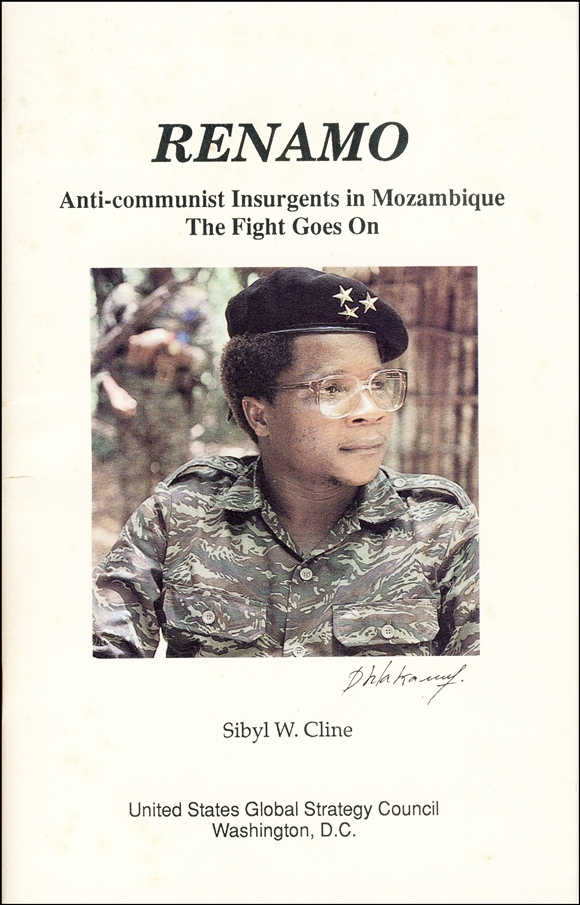The Conflict with Renamo, 1976-1992
«June 1989»
Dossier MZ-0020
![]()




![]()
112. Agricultural Marketing Collapses; Conservative Think-Tank Publishes "RENAMO: the Fight Goes On"

Above: Right-wing think-tanks in the United States and the United Kingdom, as well as elsewhere, continued to produce literature representing Renamo as anti-communist freedom fighters. In the case of the United States, however, this activity failed to produce overt administration support for the rebels, for complex reasons.
The war had a catastrophic impact on agricultural marketing. Of the approximately 5,000 rural shops that were operating in 1981/1982 (after the collapse at independence with the departure of most Portuguese cantineiros, only 1,800 were still operating by 1985. The number of rural cooperatives dropped from 1,000 in 1985 to 580 in 1988. The AGRICOM distribution network, which earlier had 148 permanent posts and 105 mobile brigades, by 1988/1989 had a total of only 200 units of all kinds.
At the end of June a report by Sibyl Cline entitled The Fight Goes On: RENAMO, Anti-Communist Insurgents in Mozambique was released in draft by the United States Global Strategy Council. The GSC was a conservative think-tank based in Washington DC and founded by Ray Cline, a former deputy director of the Central Intelligence Agency (CIA) who was considered an expert on Korea and Taiwan. The Council had strong ties with the US military, and with the US intelligence community. The author of the report was Sibyl Cline, who visited Mozambique in 1987, 1988 and 1989.
Mozambican radio reported that RENAMO casualties in the first half of June, and ten camps were captured, with over 600 people released from captivity.
![]()
Click on the yellow folder image below to download an unsorted zipped archive of 39 documents and press clippings in PDF format concerning the conflict between the Mozambican government and the MNR/Renamo in June 1989. Archive dated 30 August 2022.
![]()
![]()



![Aluka: Struggles for Freedom [subscription required] Struggles for Freedom](imgs/aluka_200.png)



